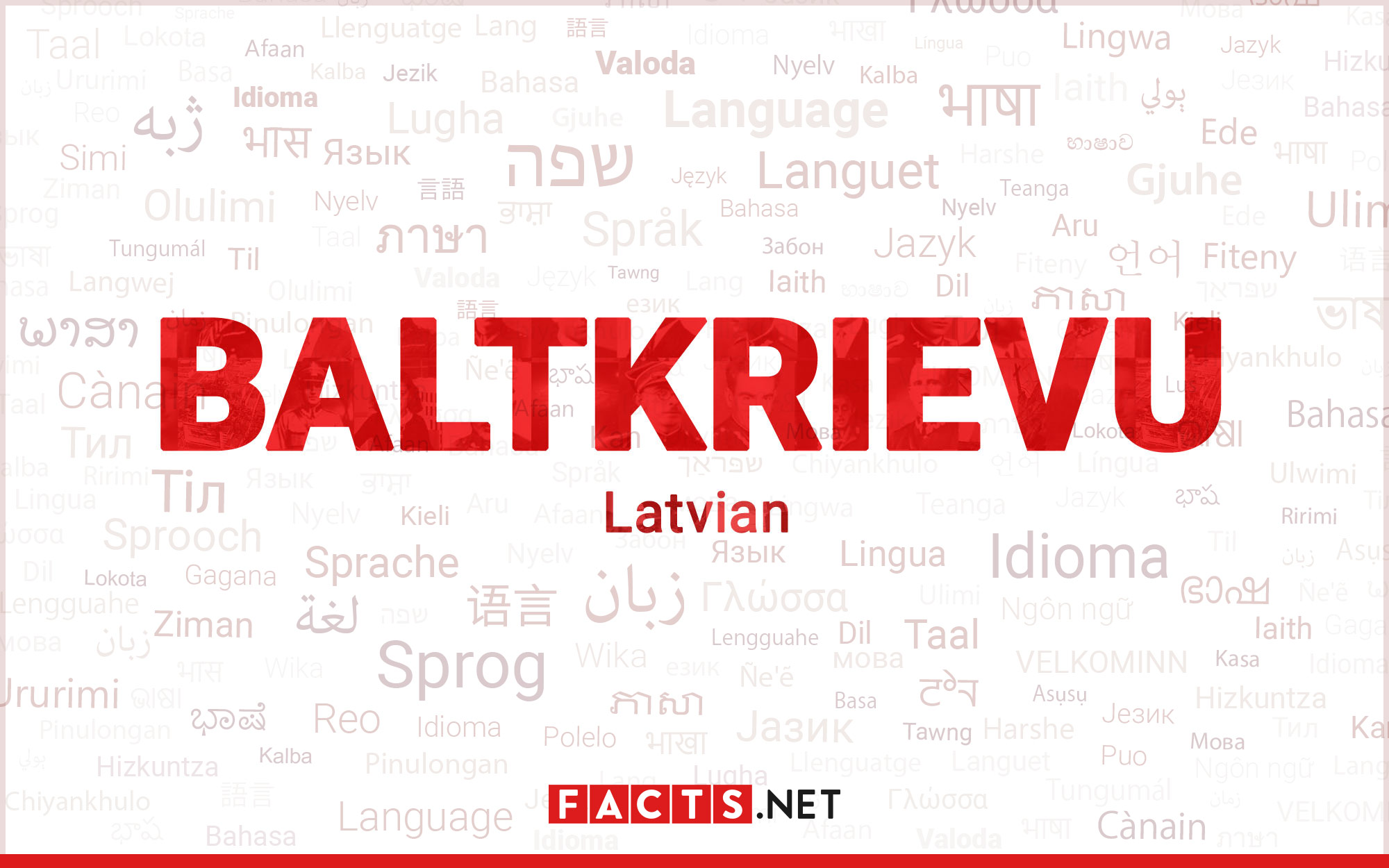
Latvian, also known as Lettish, is a fascinating and enigmatic language that holds a deep cultural and historical significance. Spoken by approximately 1.5 million people, primarily in Latvia and its diaspora communities, Latvian boasts a rich linguistic heritage that dates back centuries. This Baltic language is renowned for its distinct phonetics, complex grammar, and unique vocabulary.
In this article, we will delve into the intriguing world of Latvian and explore twelve enigmatic facts about the language. From its ancient roots to its modern usage, we will uncover interesting tidbits that make Latvian an intriguing subject of study for linguists, history enthusiasts, and language aficionados alike.
Key Takeaways:
- Latvian is an ancient and unique language with rich historical roots, complex grammar, and a musical quality due to diphthongs, making it a fascinating subject for language enthusiasts.
- Despite influences from other languages, Latvian has preserved its cultural identity and resilience, making it a treasure trove of mythical legends and enchanting tales.
A Unique Baltic Language
Latvian is an intriguing language that belongs to the Baltic language family, which is a branch of the Indo-European language group. It is the official language of Latvia and is spoken by approximately two million people worldwide.
One of the Oldest Languages in Europe
Did you know that Latvian is one of the oldest languages in Europe? It has deep historical roots and has preserved many ancient linguistic features, making it a fascinating subject of study for linguists and language enthusiasts alike.
Rich in Cases
Latvian is renowned for its complex grammatical system that includes seven noun cases. These cases play an essential role in indicating the relationships between words in a sentence, making Latvian a particularly expressive and precise language.
A Haven for Palindromes
Palindromes are words, phrases, or sentences that are spelled the same way forwards and backward. In Latvian, you can find an abundance of palindromic words, such as “ala” (cave) or “pirip” (a type of butterfly), adding an enigmatic touch to the language.
Third-Person Reflexive Pronoun
Unlike many other languages, Latvian has a distinct third-person reflexive pronoun, “sevi,” which is used when the subject and the object of a verb refer to the same person or thing. This grammatical feature adds depth and complexity to the language.
The Power of Dipthongs
Latvian is characterized by its melodic and harmonic qualities, thanks to the prevalence of diphthongs. These combinations of two vowel sounds pronounced as a single syllable give the language a unique rhythm and musicality.
The Latvian Alphabet
The Latvian alphabet consists of 33 letters, including special characters such as “?” and “?.” Its orthography is phonetic, which means that the pronunciation of words can generally be deduced from their written form, making it easier for learners to grasp.
An Abundance of Folk Songs
Latvian culture is deeply rooted in folk traditions, and music plays a central role. The Latvian language has a rich tradition of dainas, which are short folk songs that reflect the country’s history, traditions, and poetic sensibilities.
Influences from Other Languages
While Latvian is an ancient language, it has not remained untouched by outside influences. Over the centuries, Latvian has absorbed loanwords from various sources, including German, Swedish, Polish, and Russian, creating a linguistic tapestry.
A Language of Legends
Latvian folklore is a treasure trove of mythical beings and enchanting tales. The language used in these legends adds to their mystique and creates a strong connection between Latvians and their cultural heritage.
Latvian and Linguistic Distance
Latvian is considered one of the most distant languages from English in terms of linguistic similarity. This fascinating distinction showcases the uniqueness of the Latvian language and its distinct linguistic features.
A Language of Resilience
Despite various historical challenges and periods of occupation, the Latvian language has emerged as a symbol of cultural identity and resilience for the Latvian people. Its preservation and continued use demonstrate the enduring spirit of the nation.
These 12 enigmatic facts about Latvian (language) illustrate the richness and uniqueness of this Baltic gem. Whether you’re captivated by its ancient roots, fascinated by its grammatical intricacies, or drawn to its musicality, exploring the Latvian language can be a rewarding and enlightening experience.
Conclusion
In conclusion, Latvian is a truly enigmatic language that is rich in history, complexity, and unique features. From its distinct grammar structure to its extensive vowel inventory, Latvian is a language that continues to captivate linguists and language enthusiasts alike. Whether you are planning to travel to Latvia or simply want to explore a fascinating language, delving into the world of Latvian can be a rewarding and eye-opening experience. So, why not embark on a journey to uncover the intricacies and secrets of Latvian? Discover the beauty and complexity of this Baltic gem and expand your linguistic horizons.
FAQs
1. Is Latvian a difficult language to learn?
While Latvian does have its challenges, such as its complex grammar and unique phonetic system, with dedication and practice, it is certainly possible to learn. Like any language, consistency and immersion play a crucial role in mastering Latvian.
2. How many people speak Latvian?
Latvian is the official language of Latvia and is spoken by approximately 1.5 million people. It is also recognized as a minority language in several neighboring countries.
3. What are some interesting features of the Latvian language?
Latvian features a rich vocabulary, a precise case system, and a wide range of diacritical marks. It also has a unique vowel harmony system, where vowels must harmonize based on certain phonetic patterns.
4. Can I learn Latvian online?
Absolutely! There are various online resources, such as language learning websites, apps, and courses, that can help you learn Latvian at your own pace.
5. Are there any similarities between Latvian and other languages?
Latvian is a Baltic language and shares some similarities with Lithuanian, its closest linguistic relative. There are also a few shared words and influences from neighboring countries such as Russia, Estonia, and Germany.
Latvian, one of the Baltic languages, offers a fascinating glimpse into the rich tapestry of Indo-European languages. While exploring its enigmatic facts, consider delving into the extraordinary life of Latvian tennis player Ernests Gulbis or the mindblowing characteristics shared by Latvian and Lithuanian, two closely related Baltic languages. For a broader perspective on the Indo-European language family, the astonishing features of Armenian language await your discovery.
Was this page helpful?
Our commitment to delivering trustworthy and engaging content is at the heart of what we do. Each fact on our site is contributed by real users like you, bringing a wealth of diverse insights and information. To ensure the highest standards of accuracy and reliability, our dedicated editors meticulously review each submission. This process guarantees that the facts we share are not only fascinating but also credible. Trust in our commitment to quality and authenticity as you explore and learn with us.


